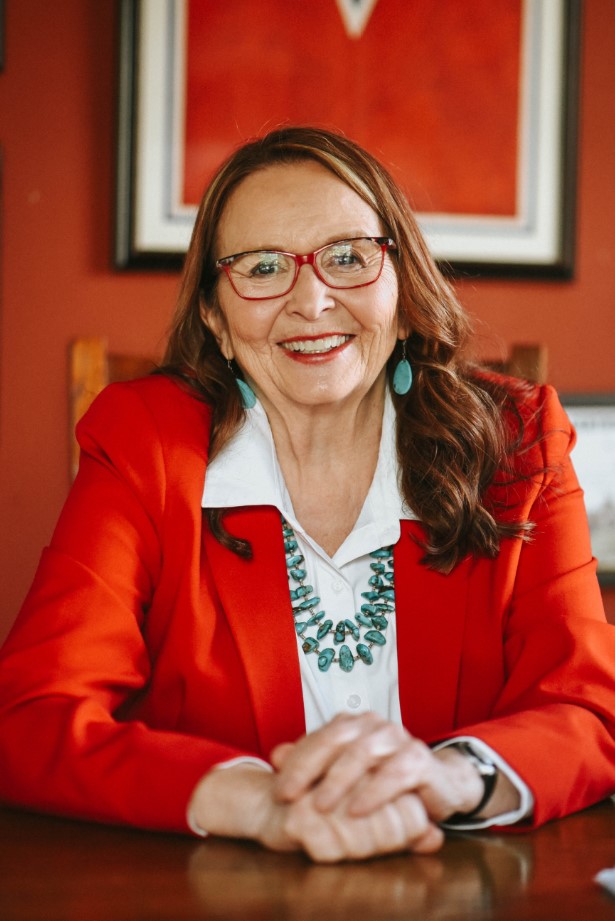Known as the Farmer’s Lawyer, Equity Commission Agriculture Subcommittee member Sarah Vogel has been vocal on issues impacting rural and Tribal communities; farmers who are young, new, and beginning; women; and Black, Indigenous, and people of color (BIPOC), and farmworkers. Vogel became passionate for those involved in the agriculture industry through her upbringing in North Dakota where the linkage between family farms and the vitality of small towns is strong. Over the past two years, Vogel has been integral in ensuring the voice and needs of underserved people are heard, even urging USDA to bring the Equity Commission to Bismarck, North Dakota.
“We don't have a big population base and as a very farming dependent state, with a great number of Native Americans who reside here, the attention to the challenges facing people in North Dakota that was brought here by USDA during the [Equity Commission] public meeting meant a lot to us,” said Sarah Vogel.
Last year’s public meeting (PDF, 969 KB) in Bismarck was held at the United Tribes Technical College, a land-grant institution that offers degrees for Indigenous students. It was the perfect backdrop for the Equity Commission members to hear from the Rural Community Economic Development subcommittee on recommendations that supported rural and Native communities. Since then, the Equity Commission has launched its final report and USDA has embarked on Regional Convenings, meeting Equity Commission and Subcommittee members in their home states across the country to share their progress on advancing equity at USDA and to engage stakeholders in matters that are most important to them.
“In thinking through how services can be provided to lightly populated areas, I’m optimistic that USDA will make the effort to advance equity as the Department continues to engage rural and Tribal communities,” said Vogel. “Being invited inside the tent to develop recommendations that are of public interest and being assured by the Department in their implementation of those recommendations and their meetings with stakeholders has been wonderful.”
A longtime advocate for farmers, Vogel believes that “success for this Commission will look like satisfaction by the people that interact with USDA on a day-to-day basis, where customers can walk into an office trusting that their voices will be heard and that they will be treated fairly and like everybody else.”
As the Equity Commission’s service ends, USDA is committed to exhausting every tool available to implement the 66 recommendations in its efforts to advance equity for all, an effort that will last far beyond the Commission’s tenure.
“In standing up the Equity Commission and our two subcommittees, USDA has had an opportunity to get things done that haven't been done before and to make sure going forward, equity is an integral, recognized, and a successful part of the Department and all of its programs,” Vogel concluded.
A final convening will be held on September 25th at USDA’s Headquarters in Washington D.C. as a culmination of its stakeholder engagements across the country. The event will be a celebration of the Equity Commission and its Agriculture and Rural Community Economic Development Subcommittees’ commitment, since 2021, to provide their expansive knowledge and expertise on how equity can be integrated so that all customers of USDA receive a fair shot at a prosperous, successful livelihood.
The Equity Commission Final Report is available in both English (PDF, 2.0 MB) and Spanish (PDF, 1.7 MB). For more on how USDA is making strides in centering equity, visit www.usda.gov/equity.

